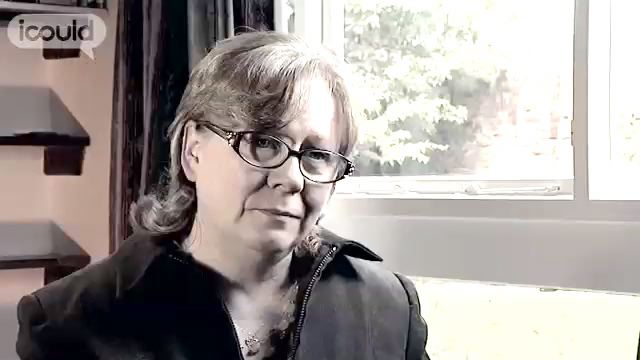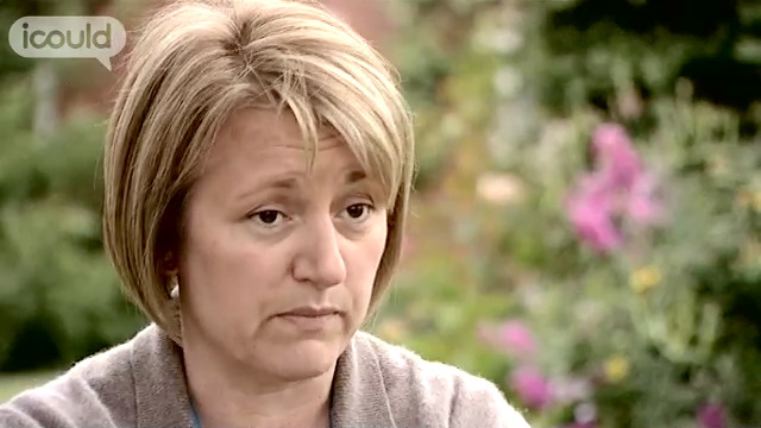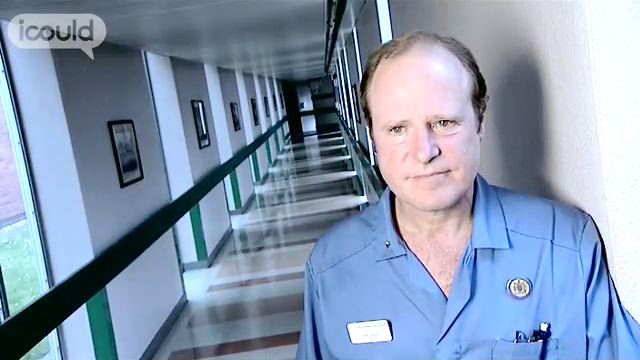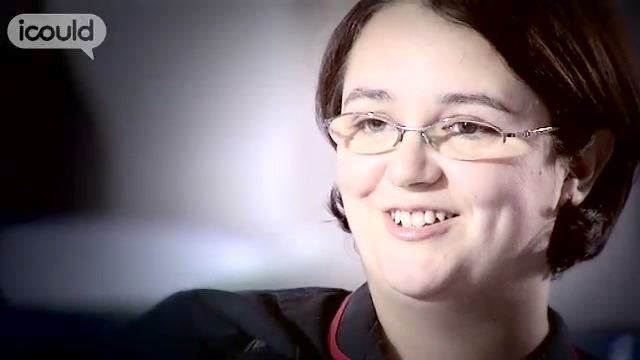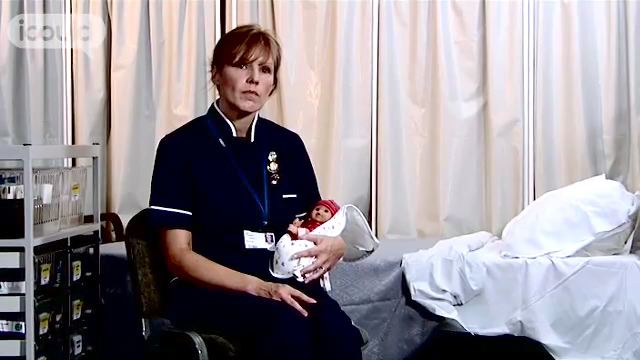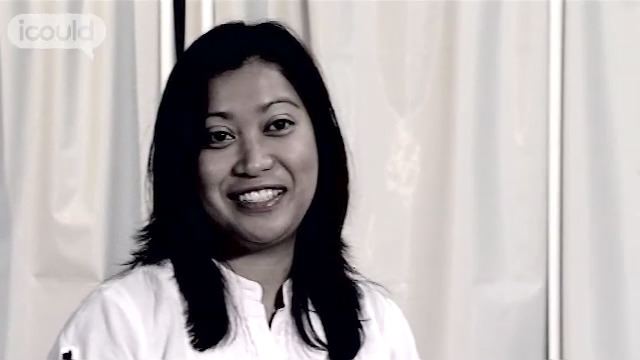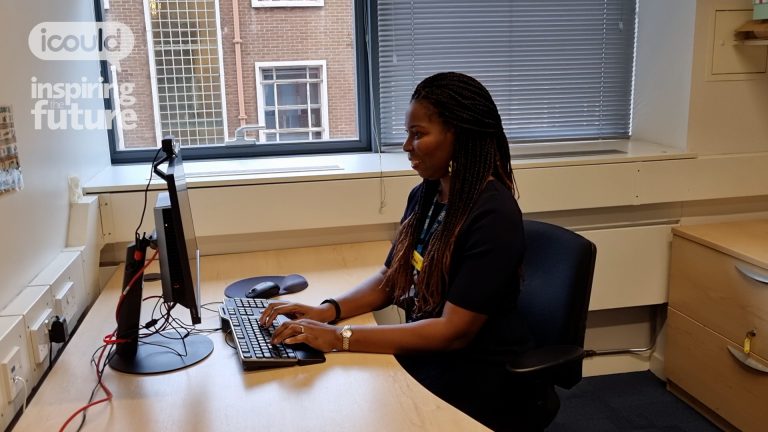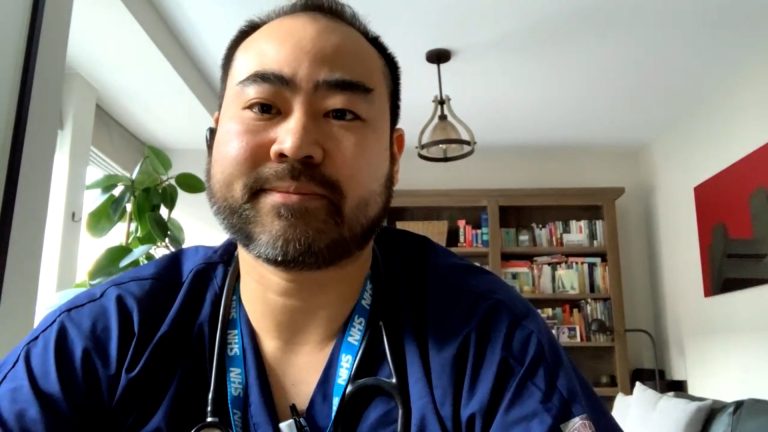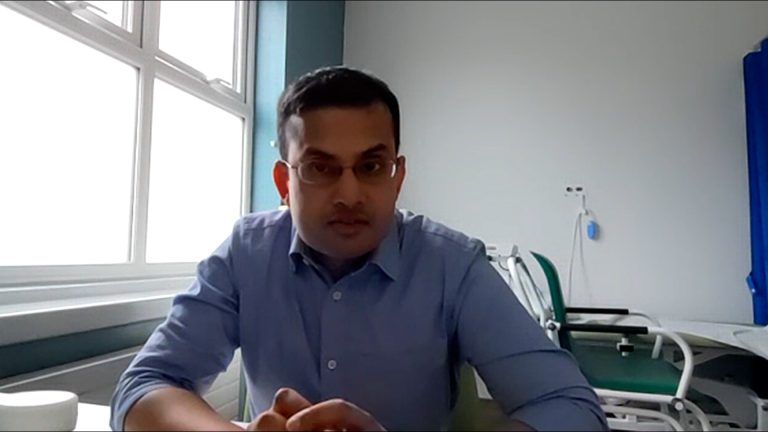Clinical Skills Tutor
Addenbrookes Hospital
Klaudine S
00:00:03 My name’s Klaud Simpson and I’m Senior Clinical Skills Tutor for Undergraduate Medicine at Cambridge University. What I do is I teach undergraduate medical students key skills that they require to qualify as doctors. This arm enables us to teach medical students and nurses how to take blood. When you’ve gone to the GP Surgery and had blood, they would have ultimately practised on this first. This scary chap is Choking Charlie, and he always seems to choke on his meat. So we’re teaching how to get the lump of meat out the back of his throat. We teach the technique and the process to ensure that they’re competent at the process prior to going to a human.
00:00:47 My background is nursing. So I became a nurse and came to Addenbrookes in 1992, worked on the wards for four years, and then began to feel a bit disillusioned with standards of care, and I decided to leave, became a rep to teach people how to use clinical – do clinical skills using mannequins. It was through teaching through this company that I actually went to a University in London and they saw me teach, and they asked me whether I wanted to become a Clinical Skills Tutor.
00:01:22 What would my school friends think of me now. The friends I have would be probably very proud of me, and those who were I guess the bit the bullies or saw me as a odd-bod, would possibly be quite surprised that I’m quite successful now.
00:01:39 My philosophy is yes, get a good job that pays well, so that you can live your life away from work, and work isn’t a priority in life, it’s something you should enjoy. I absolutely adore cycling. Speed cycling, competitive cycling, beating the men. If I can beat a man on anything I love it, and I love the look on their faces when I do beat them cycling. It gives me a buzz. Do I have a hero? Lance Armstrong, he is pretty cool, yeah, beat cancer, charity with cancer, and the Tour de France seven times.
00:02:21 I’m going to retire here, I’m very happy here. I’ve been happy and successful in what I’ve done, and I’ve now found an area where I feel I’m contributing to the NHS, I’m contributing to patient care, I’m happy, it’s fun, so I don’t know what the future holds or what direction – I’d have to allow the path to lead me as and when I’m not so happy, I guess. How do I feel – how do I feel about my achievements? I will look back on my life and think I’ve done something worthwhile and, you know, I’m happy with the way and the course my life is leading. So really I guess I’m a happy – my achievements – I’d be a happy old person. The highlights of my career?
00:03:20 Holding someone’s hand when they’re dying, cuddling someone when they’re crying, having cards given to me saying thank you, teaching students and seeing them develop and become the doctors, you know, on the wards and they look back and you just think – I remember you when you were crying on my shoulder ’cause you couldn’t get the needle in the arm, and look at you now. Those are the highlights.
00:03:44 ENDS
Klaudine S teaches medical students. She gets job satisfaction when she sees Doctors she has trained “on the wards and they look back and you just think – I remember when you were crying on my shoulder cause you couldn’t get the needle in the arm, and look at you now.”
More information about Midwifery nurses
The UK average salary is £29,813
There are 37.5 hours in the average working week
The UK workforce is 47% female and 53% male
Future employment
- Monitors condition and progress of patient and baby throughout pregnancy
- Delivers babies in normal births and assists doctors with difficult deliveries
- Monitors recovery of mother in postnatal period and supervises the nursing of premature and other babies requiring special attention
- Advises on baby care, exercise, diet and family planning issues
- Supervises more junior staff and directs the work of the midwifery unit
- Plans and manages midwifery care services
- Delivers lectures and other forms of training in midwifery practice
